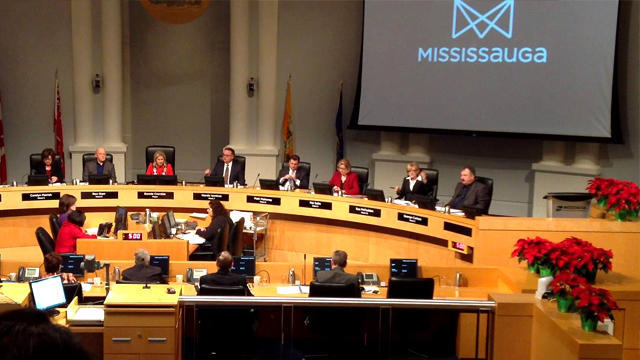Residents Who Donate to Mississauga Politicians Could Get Some Cash Back
Published February 27, 2017 at 6:06 am

By the time the 2018 municipal elections come to Ontario, a number of changes brought in by the provincial government will take effect to change the way campaigns are conducted. One change is the banning of corporate and union donations–a rule in effect for federal and provincial elections that will now trickle down to municipal elections in Ontario.
Without money from corporate and union sources, candidates for mayor and councillor in Mississauga and beyond will have to rely on contributions from individual donors. The maximum amount a person can donate is $750. Unlike in federal and provincial elections, you didn’t used to get a rebate for a donation you made to a candidate.
But now you might get some bang back for your buck.
During a recent meeting, Mississauga City Council voted to implement a Municipal Election Campaign Contribution Rebate Program for the 2018 municipal election. As the city’s press release outlines, a rebate program enables a municipality to reimburse contributions made by individuals to the campaign of a candidate running for mayor or councillor. Application rules and procedures must be followed by the candidate and contributor in order for Mississauga to pay a rebate. Rebates of 25 per cent will be issued for financial contributions between $25 and $150.
In reaching their decision, the council looked over rebate programs from two other jurisdictions: Whitby and Ottawa. In the city’s Corporate Report starting at page 82, Mississauga city staff compared the numbers from those municipalities to give an indication of what the rebate would be if Mississauga had this program during the 2014 municipal election campaign.
There are also other municipal election rebate programs in other Ontario municipalities, such as Toronto, Markham, and Ajax. All of them are based on a similar structure that Mississauga is now adopting. As to whether they increase voter participation in elections, the results are rather mixed. Mississauga’s voter turnout in 2014 was 36 per cent, so when the 2018 election concludes and if voter turnout is higher than 36 per cent, then this rebate program may have provided a small contribution to that increase.
Despite the precedent being set by other cities, it’s fine to wonder if the rebates will entice regular people to vote–even the little voters that candidates say donate to their campaigns.
Ward 5 Councillor Carolyn Parrish supported the program, and said during the council meeting that most of her contributions came from “mom and pop donors.” Parrish told Insauga that in her first municipal campaign in 2006, 50 per cent of donations came from individuals giving her less than $100. So with that being said, her financial statement from 2014 shows that the vast majority of those donations came from prominent representatives of the construction and property management industry, and some big chains like Tim Hortons. Parrish also got $750 (the maximum amount allowed from individual donors) from Iggy Kaneff of Kaneff Properties, one of the most successful businessmen and philanthropists in Canada. I seriously doubt someone like Iggy Kaneff needs or would care about getting a rebate.
Likewise, Ward 2 Councillor Karen Ras’ election financial statements showed a number of prominent donors that, based on their profiles, would be considered anything but ‘mom and pop.’ A good chunk of them are Conservatives like Ras herself, such as former MP Brad Butt, David Brown (a planning consultant and former Tory candidate), and former Ontario PC leader Tim Hudak. Ras also received a donation from David Wojcik, the current CEO of the Mississauga Board of Trade (which makes sense as Ras herself was a former Chair of MBOT). I doubt any of them would care less if they got the rebate.
My final point is that this rebate program will have to be funded by municipal taxpayers through their property tax. Property taxes were meant to service property and some municipal services, and this makes absolutely no sense at all. Nevertheless, unless Mississauga finds some other way to raise revenue, this is how this program is going to get funded.
On a point of principle, I would say donate because you believe in the person’s ability to do the job they’re campaigning for, not because you’ll get some money back in the end. But maybe this rebate program will incentivize some lower income residents of Mississauga to put in a little more participation into the local democratic process, so it does not become the exclusive domain of the very well off.
Follow me on Twitter at @thekantastic
INsauga's Editorial Standards and Policies








